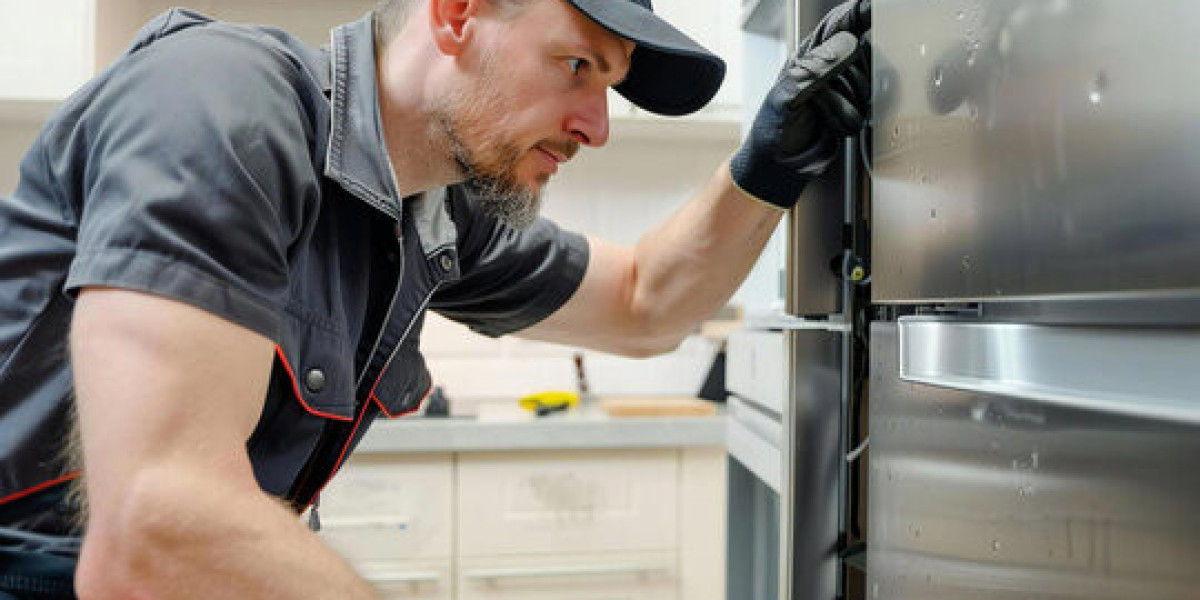In the bustling food industry of Tampa, Florida, a commercial refrigerator is not just an appliance; it's the backbone of food safety and quality. A malfunctioning refrigerator can lead to spoilage, loss of inventory, and ultimately, financial losses. Knowing the signs that indicate your commercial refrigerator needs repair can save you from these unfortunate scenarios. This article will explore common indicators that your refrigerator may be on the fritz, guiding you on when to call for professional help. From unusual noises to temperature fluctuations, we'll cover the essential signs that every business owner should be aware of to ensure smooth operations.
Unusual Noises
One of the first signs that your commercial refrigerator may need repair is the presence of unusual noises. A properly functioning refrigerator operates quietly in the background, but if you start hearing rattling, buzzing, or grinding sounds, it's time to investigate further. These noises can indicate a range of issues, from a failing compressor to problems with the fan or evaporator. For instance, a buzzing sound could suggest that the compressor is working harder than it should, which can lead to overheating and eventual breakdown if left unaddressed. Identifying unusual noises early on can prevent more severe issues down the line, keeping your refrigerator running efficiently.
Temperature Fluctuations
Maintaining a consistent temperature is crucial for any commercial refrigerator, especially when storing perishable items. If you notice that the interior temperature fluctuates significantly, it could be a sign of a malfunctioning thermostat or compressor. According to the U.S. Food and Drug Administration (FDA), the ideal temperature for refrigerator storage is at or below 40°F (4°C). If your unit struggles to maintain this temperature, it may compromise the safety of your food products. Regularly monitor the temperature and invest in a reliable thermometer to ensure it remains consistent. If you observe frequent fluctuations, it’s wise to consult a professional technician for a thorough inspection.
Frost Buildup
Another telltale sign that your commercial refrigerator needs repair is the presence of frost buildup inside the unit. While it's normal to have some frost in freezers, excessive frost accumulation in refrigerators indicates a problem. This issue could stem from a malfunctioning defrost timer, a defective door seal, or a blocked vent. Frost buildup not only hampers efficient cooling but also increases energy consumption, leading to higher utility bills. If you find yourself constantly scraping off frost or if it recurs shortly after defrosting, it’s essential to address the underlying cause. Ignoring this issue may lead to more significant damage and costly repairs.
Excessive Condensation
Excessive condensation or pooling water inside or around your commercial refrigerator is another sign that something is amiss. In a properly functioning unit, moisture is usually contained within the appliance, and any condensation should evaporate without issue. If you notice water pooling on the floor or excessive moisture accumulating on the shelves, it could indicate a damaged door seal or a clogged drain line. A faulty door seal allows warm air to enter the refrigerator, leading to condensation and temperature instability. Additionally, a clogged drain line can cause water to back up inside the unit. Addressing these issues promptly can help prevent further damage and maintain optimal performance.
Increased Energy Bills
When your commercial refrigeration repair tampa is functioning efficiently, it should consume a consistent amount of energy. However, if you notice a sudden spike in your energy bills without any changes in usage patterns, it could indicate that your refrigerator is working harder than it should. This increased energy consumption may result from internal issues, such as a failing compressor or dirty condenser coils. Regular maintenance and cleaning can help reduce energy consumption, but if your bills continue to rise, it’s crucial to have a professional technician assess the situation. Not only can this save you money in the long run, but it also ensures that your refrigerator operates at peak efficiency.
Leaking Refrigerant
Refrigerant leaks are serious and should be addressed immediately. If you notice a hissing sound or a chemical odor nearby, it could signify that refrigerant is leaking from your commercial refrigerator. This not only affects the cooling performance of the unit but also poses health and safety risks. Refrigerants can be harmful if inhaled, and a leak can lead to environmental concerns as well. If you suspect a refrigerant leak, contact a professional technician right away to assess and repair the situation. Ignoring this issue can lead to more extensive damage and costly repairs down the road.
Age of the Appliance
The age of your commercial refrigerator can also be a factor in its performance. Most commercial refrigerators have a lifespan of about 10 to 15 years, depending on usage and maintenance. If your refrigerator is nearing or exceeding this age, it may start to exhibit various signs of wear and tear. While some issues can be repaired, older refrigerators may require more frequent repairs, leading to higher operational costs. In such cases, it might be more cost-effective in the long run to consider investing in a new unit. Keeping track of your refrigerator's age and maintenance history can help you make informed decisions about repairs or replacements.
Conclusion
Recognizing the signs that your commercial refrigerator needs repair is vital for maintaining food safety and operational efficiency. From unusual noises and temperature fluctuations to excessive condensation and increased energy bills, being vigilant about these indicators can save you time and money. Regular maintenance and timely repairs can prolong the life of your refrigerator and ensure it operates smoothly. If you encounter any of these signs, don’t hesitate to consult a professional technician in Tampa to diagnose and address the issue. Remember, early detection is key to preventing more severe problems and costly repairs down the line.







